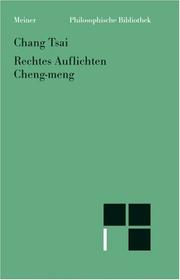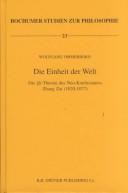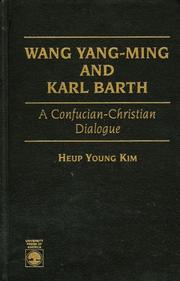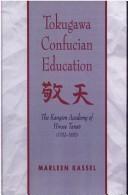| Listing 1 - 10 of 10 |
Sort by
|
Book
ISBN: 9788971052501 8971052503 Year: 1996 Publisher: Seoul: Academy of Korean studies,
Abstract | Keywords | Export | Availability | Bookmark
 Loading...
Loading...Choose an application
- Reference Manager
- EndNote
- RefWorks (Direct export to RefWorks)
Book
ISBN: 7504328138 Year: 1996 Publisher: 北京 中国广播电视出版社
Abstract | Keywords | Export | Availability | Bookmark
 Loading...
Loading...Choose an application
- Reference Manager
- EndNote
- RefWorks (Direct export to RefWorks)

Abstract | Keywords | Export | Availability | Bookmark
 Loading...
Loading...Choose an application
- Reference Manager
- EndNote
- RefWorks (Direct export to RefWorks)
Book
Abstract | Keywords | Export | Availability | Bookmark
 Loading...
Loading...Choose an application
- Reference Manager
- EndNote
- RefWorks (Direct export to RefWorks)
Book
Abstract | Keywords | Export | Availability | Bookmark
 Loading...
Loading...Choose an application
- Reference Manager
- EndNote
- RefWorks (Direct export to RefWorks)
Neo-Confucianism --- Zhang, Junmai, --- Views on Neo-Confucianism.
Book
ISBN: 7543428423 Year: 1996 Publisher: 石家庄 河北教育出版社
Abstract | Keywords | Export | Availability | Bookmark
 Loading...
Loading...Choose an application
- Reference Manager
- EndNote
- RefWorks (Direct export to RefWorks)
Book
ISBN: 7539226935 Year: 1996 Publisher: 南昌 江西教育出版社
Abstract | Keywords | Export | Availability | Bookmark
 Loading...
Loading...Choose an application
- Reference Manager
- EndNote
- RefWorks (Direct export to RefWorks)
Confucianism and education --- Neo-Confucianism --- History --- History --- Wang, Yangming, --- Influence. --- Jiangxi Sheng (China) --- History

ISBN: 1283327929 9786613327925 9027276331 9789027276339 9060323440 9789060323441 9781283327923 6613327921 Year: 1996 Publisher: Amsterdam ; Philadelphia : B.R. Grüner,
Abstract | Keywords | Export | Availability | Bookmark
 Loading...
Loading...Choose an application
- Reference Manager
- EndNote
- RefWorks (Direct export to RefWorks)
Der Neo-Konfuzianismus bildet mit seinen verschiedenen Strömungen die wichtigste Geistesschule des imperialen China seit der Song-Zeit (960-1279). Er entstand als Reaktion auf die das chinesische Denken in den Jahrhunderten vorher stark beeinflussenden Schulen des Buddhismus und des Neo-Daoismus und versteht sich selbst als eine Rückkehr zu der Essenz der ursprünglichen konfuzianischen Lehre vor der Han-Zeit (206 v.u.Z.-221 n.u.Z.). Wesentliche Elemente in den Theorien der beiden gegnerischen Schulen wurden aber vom Neo-Konfuzianismus absorbiert und haben ihn ohne Zweifel bereichert und neue E
Neo-Confucianism. --- Philosophy, Chinese. --- Chinese philosophy --- Confucianism --- Philosophy, Chinese --- Zhang, Zai, --- Chang, Tsai, --- Chang, Chae, --- 장재, --- 张載, --- Hengquxiansheng, --- Heng-chʻü-hsien-sheng, --- 橫渠先生, --- Zhang, Hengqu, --- Chang, Heng-chʻü, --- 張橫渠, --- Zhang, Zihou, --- Chang, Tzu-hou, --- 張子厚, --- Chang, Tsai --- Neo-Confucianism

ISBN: 0761802266 Year: 1996 Publisher: Lanham University press of America
Abstract | Keywords | Export | Availability | Bookmark
 Loading...
Loading...Choose an application
- Reference Manager
- EndNote
- RefWorks (Direct export to RefWorks)
Christianity and culture --- Christianity and other religions --- Confucianism --- Neo-Confucianism --- Philosophy, Comparative --- Relations --- Christianity --- Barth, Karl, --- Wang, Yangming,

ISBN: 0585043078 9780585043074 9780791428078 0791428079 0791428087 1438408420 9780791428085 9781438408422 Year: 1996 Publisher: Albany : State University of New York Press,
Abstract | Keywords | Export | Availability | Bookmark
 Loading...
Loading...Choose an application
- Reference Manager
- EndNote
- RefWorks (Direct export to RefWorks)
Presents the philosophy and values of Hirose Tanso, a scholar, educator, and poet whose well-articulated educational program was partly responsible for the relative ease with which Japan emerged from hundreds of years of self-imposed isolation and became a powerful modern nation.This book presents the world of Hirose Tanso, a late Tokugawa period (1603-1868) educator whose goal was to train men of talent in practical learning for the benefit of the country. Tanso founded a private academy called Kangien in Hita City of present-day Oita prefecture. Some 3,000 young men from 64 of the then total 68 provinces of Japan were educated at Kangien during Tanso's 50-year career as educator and administrator.Firm in his conviction that the problems he and others faced in contemporary society would be solved by setting right the moral priorities of the people, Tanso established an educational program at Kangien based on the Neo-Confucian philosophical construct of reverence for Heaven. Tanso's educational program taught students reverence for Heaven by engaging in moral self-cultivation in the practice of actions of day-to-day behavior. Students were required to adhere to stringent school regulations governing every aspect of daily life at the school and to engage in a systematic study of a Confucian educational curriculum with concomitant, rigorous testing exercises. Tanso believed that an educational program supported by the twin pillars of regulations and curriculum would, by its very nature, accomplish social reform.The microcosm of society Tanso created at Kangien provides a window through which the reader can glimpse the confluence of three important components of late Tokugawa society, institutional development; philosophical trends; and social structure. The values that Tanso stressed, study; hard work; frugality; and promotion based on merit, were, in many ways, responsible for the relative ease with which Japan emerged from hundreds of years of self-imposed isolation and became a powerful modern nation.
Confucian education --- Neo-Confucianism --- Philosophy & Religion --- Philosophy --- Confucian religious education --- Religious education --- Confucianism --- Philosophy, Chinese --- Study and teaching --- Hirose, Tansō, --- 広瀨淡窓, --- 広瀨淡窗, --- 広瀬淡窓, --- 廣瀨淡窓, --- 廣瀨淡窻, --- 廣瀬淡窓, --- 廣瀬淡窻, --- Kangien. --- Kangien Academy --- J1440 --- J4900.60 --- J4979.10 --- Japan: Philosophy -- Confucianism --- Japan: Education -- history -- Kinsei, Edo, Tokugawa period, early modern (1600-1867) --- Japan: Education -- moral education --- E-books --- Hirose, Tansō, --- Kangien --- Confucian education - Japan --- Neo-Confucianism - Study and teaching - Japan --- Hirose, Tansō, - 1782-1856
| Listing 1 - 10 of 10 |
Sort by
|

 Search
Search Feedback
Feedback About
About Help
Help News
News